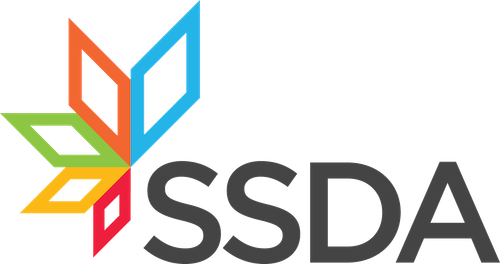The September State Board of Education (SBE) hearing continued the focus on accountability and assessment and included extensive discussion but few official actions. Below is a summary of the key items, including the Evaluation Rubrics, AYP, the Smarter Balanced Summative and Interim Assessments, Technology, the California Alternate Assessment Field Test, and the Next Generation Science Standards Assessments.
The board also swore in the 2015-16 SBE Student member, Michael McFarland of Rancho Palos Verdes.
ACCOUNTABILITY
LCAP Evaluation Rubrics
As previously mentioned, one of the most significant pieces of the new accountability system is the LCAP Evaluation Rubrics, which will allow LEAs to evaluate their strengths, weaknesses, and areas that require improvement; assist county superintendents of schools to identify needs and focus technical assistance; and assist the SPI to direct interventions when warranted. SBE has until October 2016 to approve the rubrics.
Between now and the new year, CDE will be working with WestEd to prepare analyses of existing accountability statutes and regulations that may need to be modified to align with the new accountability system, and to develop a process to gather feedback on components of the evaluation rubrics to inform content and structure. At the November SBE hearing, the members will be presented with recommendations for a framework and implementation plan.
Average Yearly Progress (AYP)
One of the few contentious items at the hearing was CDE’s proposed AYP target for elementary and middle school attendance rates. At the January SBE hearing, the board approved the use of attendance rates as an indicator for elementary and middle school grades for AYP purposes; however, a target rate was not approved at that time and CDE staff were asked to provide supportive research as well as data on the impact on LEAs for any recommended target rate. At the September SBE hearing, CDE proposed a target rate of 93 percent for the 2014-15 school year. CDE’s recommendation was met with concern from education stakeholders who argued that it was unfair to impose a target for LEAs after the school year was over and LEAs could not do anything to improve. Additionally, SBE members Burr and Rucker felt the proposed target was too high. As a result, SBE approved a lower target of 90 percent for elementary and middle school attendance rates for the 2014-15 school year. According to CSBA, 139 schools will be affected as their 2014-15 attendance rate was lower than 90 percent.
ASSESSMENT - California Assessment of Student Performance and Progress (CAASPP)– Update on Program Activities
Smarter Balanced Summative Assessments
The SBE hearing was prior to the September 9 public release of the assessment results which allowed CDE to give the board a sneak preview at the meeting. CDE provided a detailed update on the test administration and cautioned the board to expect these initial scores to be low and for public concern to be high. CDE provided the board with a presentation to assist the members in understanding the scores as well as how information will be provided to parents and the public. You may find it helpful as well. http://www.cde.ca.gov/be/ag/ag/yr15/documents/sep15item01a2.pdf
In addition, CDE is in the process of developing the SPI’s recommendation for the development and administration of a summative assessment in primary languages other than English and will be making a presentation at a future SBE meeting.
Smarter Balanced Interim Assessments
Beginning with the 2015-16 school year, LEAs may administer the interim comprehensive assessments up to three times per student and the interim assessment blocks an unlimited number of times. In addition, LEAs may now administer interim assessments for any grade level to any student.
Technology Update - Broadband Infrastructure Improvement Grant (BIIG)
The 2015-16 State Budget contains $50 million in one-time funds for the K-12 High Speed Network (K12HSN) to support additional network connectivity infrastructure grants. First priority will be given to school sites with a current connection speed below 20 Kilobits per second (Kbps) per student, that will be unable to administer the 2016 computer-based CAASPP assessment, and are unable to improve their Internet connection. Second priority will be given to schools with a connection less than 100 Kbps per student and which have limited options to improve their connections for the computer-based CAASPP assessment. Third priority will be given to schools, provided funds are available, to under-connected schools ranked by the lowest connection capacity. The grant application window closes September 30, 2015.
California Alternate Assessment Field Test (CAA)
CDE continues to have conversations with the National Center and State Collaborative (NCSC) as plans are developed for the 2015–16 operational test. As previously mentioned, NCSC has an RFP with some states to develop an alternate assessment and California hopes to either use the NCSC items and/oor NCSC assessment in 2016.
Next Generation Science Standards (NGSS) Assessments
CDE continues to work with state and national science educators and experts involved in NGSS assessment development work. CDE is a member of the Council of Chief State School Officers (CCSSO) Science Assessment Item Collaborative (SAIC) – a collaborative of states established to develop high-quality summative science test items aligned to the NGSS that could be used by member states as they build state science assessments. The SAIC Assessment Framework and the Item Specifications Guidelines are in their final review stage and the science item prototypes are in their initial stages of development.
OTHER ITEMS OF NOTE
Openings on SBE standing committees
Advisory Committee on Charter Schools – two openings and applicants must be school board members or superintendents
Advisory Committee on Special Education – one opening and applicants must be a parent of a disabled student
Instructional Quality Commission – five openings for teachers, especially in the areas of health, ELA/ELD and visual and performing arts
2016-17 Student Board Member – applicants must be current 11th graders.
All applications are due by October 12, 2015
Lee Angela Reid, Senior Legislative Advocate Capitol Advisors Group, LLC

